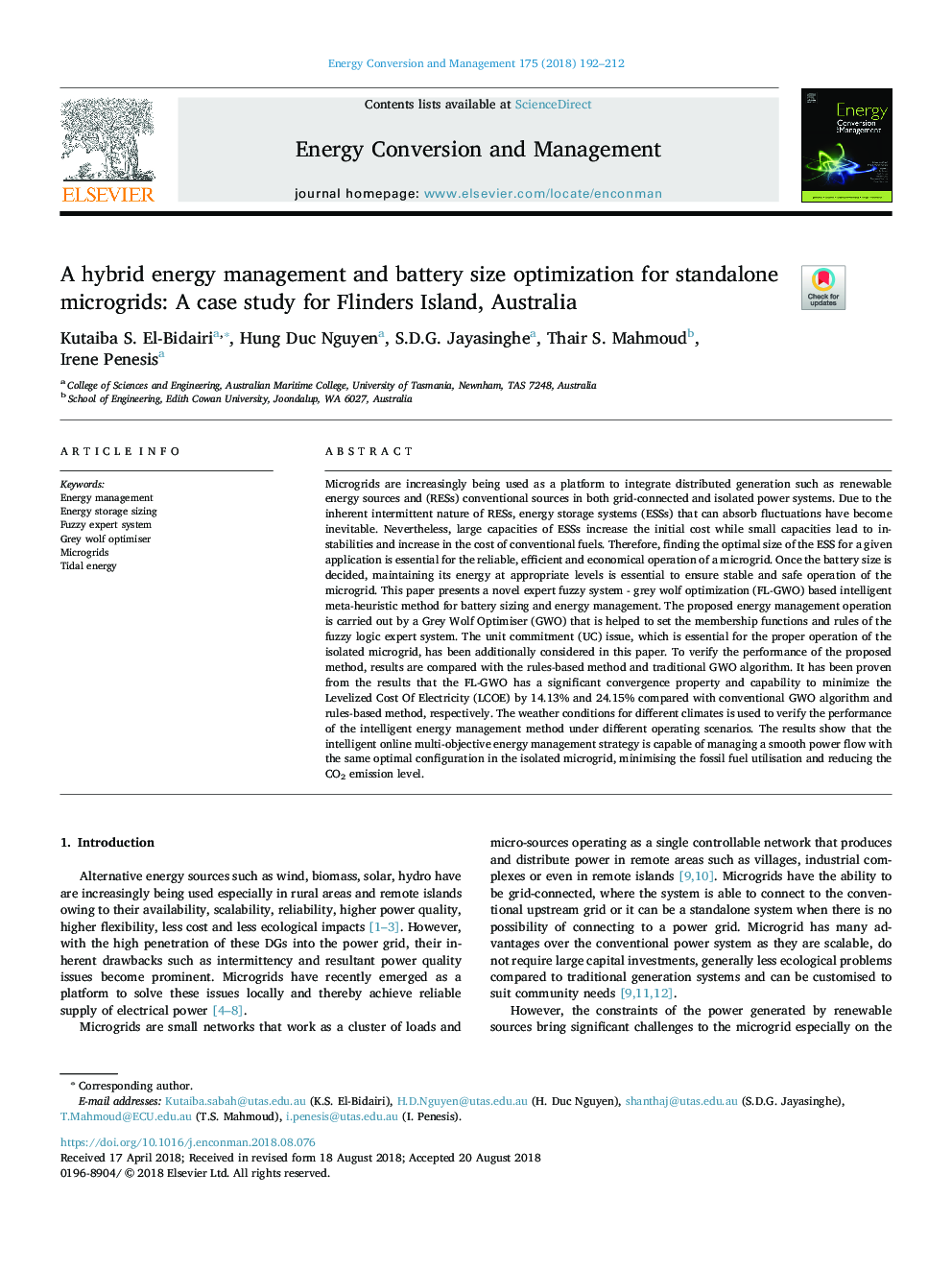| کد مقاله | کد نشریه | سال انتشار | مقاله انگلیسی | نسخه تمام متن |
|---|---|---|---|---|
| 10140156 | 1645995 | 2018 | 21 صفحه PDF | دانلود رایگان |
عنوان انگلیسی مقاله ISI
A hybrid energy management and battery size optimization for standalone microgrids: A case study for Flinders Island, Australia
ترجمه فارسی عنوان
مدیریت انرژی ترکیبی و بهینه سازی باتری برای میکروجیج های مستقل: یک مطالعه مورد برای جزیره فلیندرز، استرالیا
دانلود مقاله + سفارش ترجمه
دانلود مقاله ISI انگلیسی
رایگان برای ایرانیان
کلمات کلیدی
موضوعات مرتبط
مهندسی و علوم پایه
مهندسی انرژی
انرژی (عمومی)
چکیده انگلیسی
Microgrids are increasingly being used as a platform to integrate distributed generation such as renewable energy sources and (RESs) conventional sources in both grid-connected and isolated power systems. Due to the inherent intermittent nature of RESs, energy storage systems (ESSs) that can absorb fluctuations have become inevitable. Nevertheless, large capacities of ESSs increase the initial cost while small capacities lead to instabilities and increase in the cost of conventional fuels. Therefore, finding the optimal size of the ESS for a given application is essential for the reliable, efficient and economical operation of a microgrid. Once the battery size is decided, maintaining its energy at appropriate levels is essential to ensure stable and safe operation of the microgrid. This paper presents a novel expert fuzzy system - grey wolf optimization (FL-GWO) based intelligent meta-heuristic method for battery sizing and energy management. The proposed energy management operation is carried out by a Grey Wolf Optimiser (GWO) that is helped to set the membership functions and rules of the fuzzy logic expert system. The unit commitment (UC) issue, which is essential for the proper operation of the isolated microgrid, has been additionally considered in this paper. To verify the performance of the proposed method, results are compared with the rules-based method and traditional GWO algorithm. It has been proven from the results that the FL-GWO has a significant convergence property and capability to minimize the Levelized Cost Of Electricity (LCOE) by 14.13% and 24.15% compared with conventional GWO algorithm and rules-based method, respectively. The weather conditions for different climates is used to verify the performance of the intelligent energy management method under different operating scenarios. The results show that the intelligent online multi-objective energy management strategy is capable of managing a smooth power flow with the same optimal configuration in the isolated microgrid, minimising the fossil fuel utilisation and reducing the CO2 emission level.
ناشر
Database: Elsevier - ScienceDirect (ساینس دایرکت)
Journal: Energy Conversion and Management - Volume 175, 1 November 2018, Pages 192-212
Journal: Energy Conversion and Management - Volume 175, 1 November 2018, Pages 192-212
نویسندگان
Kutaiba S. El-Bidairi, Hung Duc Nguyen, S.D.G. Jayasinghe, Thair S. Mahmoud, Irene Penesis,
